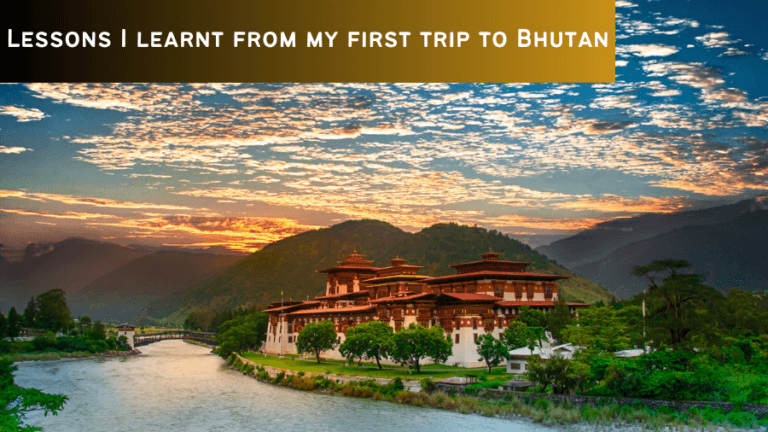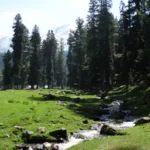Travel has often been cited as a means to gain knowledge that cannot be acquired through traditional means such as earning a college degree or reading books. Such was a trip to Bhutan, the Land of the Thunder Dragon as famously addressed has a lot more to offer other than the bountiful amount of natural beauty it has been gifted in abundance with.
Despite being blessed with an abundance of cherry blossoms, cypress and willow trees, and impressive Buddhist architecture, Bhutan holds an enigma that is hard to describe but is sure to captivate visitors upon arrival in this magical kingdom.
Bhutan’s unique approach to measuring the nation’s development by considering the well-being of each citizen is widely known. This concept is truly remarkable and offers valuable lessons that can be applied beyond Bhutan’s borders. Moreover, the benevolent nature of Bhutan is reflected in the simple request it makes of visitors to keep the country clean by avoiding littering.
1. The sense of ownership towards one’s culture and conserving it.
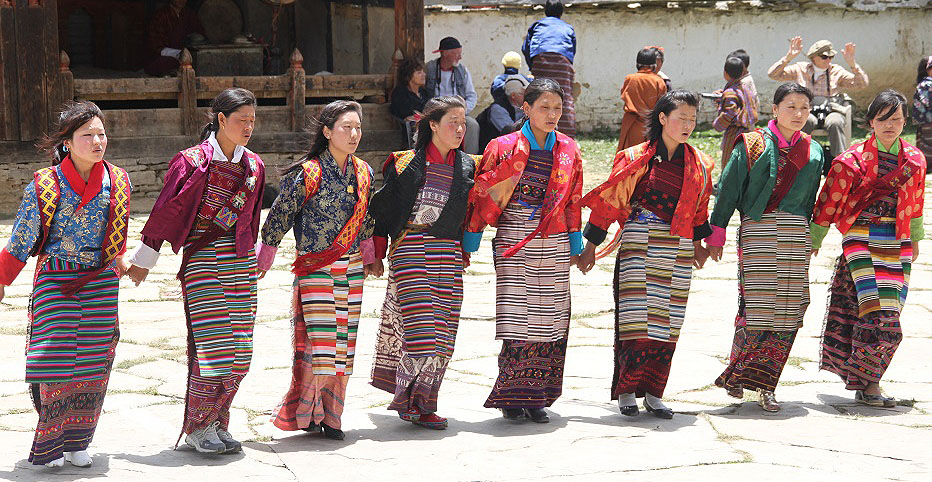
Bhutan is not only abundantly endowed in natural beauty but also in terms of mesmerizing Buddhist architecture, ranging from towering Dzongs, monasteries, colleges for Buddhist studies, traditional wooden bridges, chortens or stupas etc. Not a single structure of cultural and historic significance is deliberately soiled by the people. Indians should therefore learn to stop writing absurd things like “I love you Pooja” on the walls of such important structures in our own country.

The people value their culture and are working their every bit to conserve it. Bhutan follows a dress code for the people, the women are supposed to wear the Kira and the men wear the Gho while entering any official building such as Dzongs or monasteries, etc. The imposition of such a dress code may come across as a too-strict move to many, but I sort of loved the idea. This indeed is also a way of conserving the rich culture people have inherited, plus it really looks pretty and colorful.
2. Cleanliness is not just the responsibility of the government
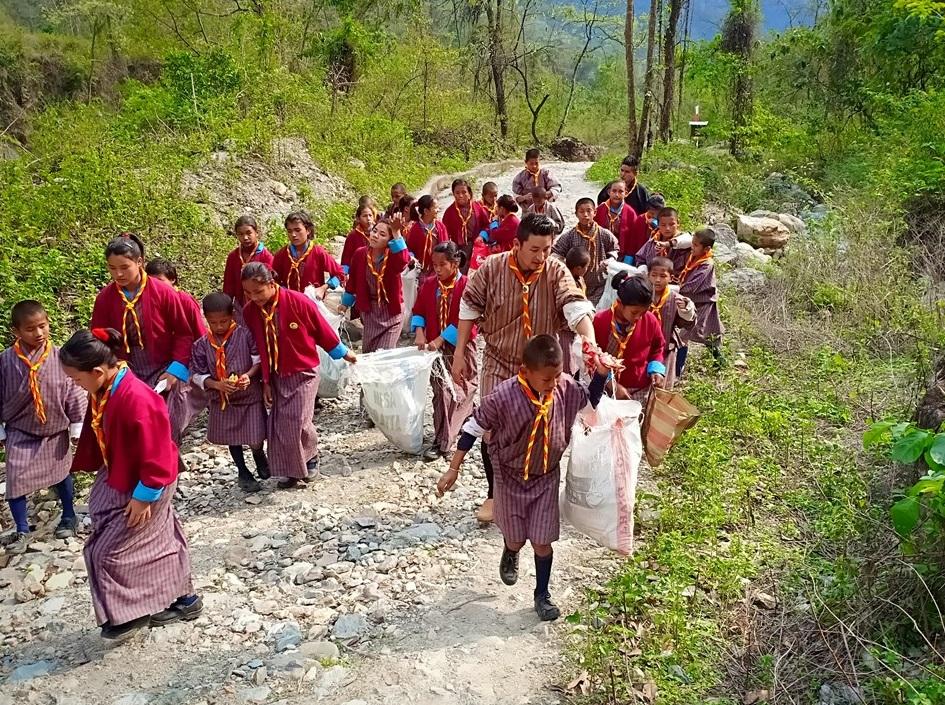
We always blame the government and other people for the filth we see on roads every day. Despite the introduction of “Swachh Bharat Abhiyan” (Clean India Campaign) by the Indian government, there is no visible change. We see filth and dirt almost everywhere we go in India (except a few places). And the situation is even worse in urban cities like Delhi, Mumbai, and so on.
In Bhutan, I witnessed a beautiful trend. It’s not just government that takes care of the cleanliness in the country, but students, office-goers, and shopkeepers contribute towards it voluntarily and happily. People love their country by heart and make every effort to keep it in good condition. Regular cleanliness drives by schools, colleges, and officials is a common scene there.
Why can’t our schools, colleges, and offices start participating in the same way, to make India clean? Having a population of over 1.2 Billion, it should not be an impossible task to achieve right?
3. Following traffic rules makes life much better for everyone
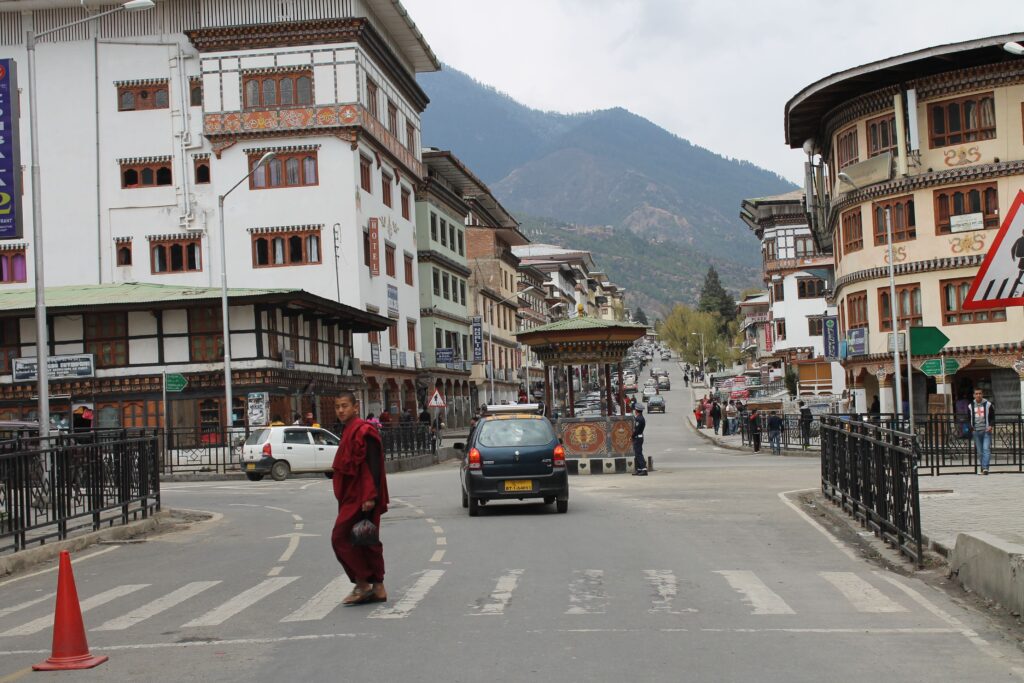
Don’t judge me here! I love my India but, no country is perfect, right? However, I recognize that no country is flawless, and there is no harm in seeking positive traits from other nations. One thing that I am eager to change in India immediately is the lack of sensibility and responsibility among the people towards following traffic rules. These rules are in place for our own safety and not for the benefit of the government alone. Unfortunately, a majority of people willingly or unwillingly violate traffic rules.
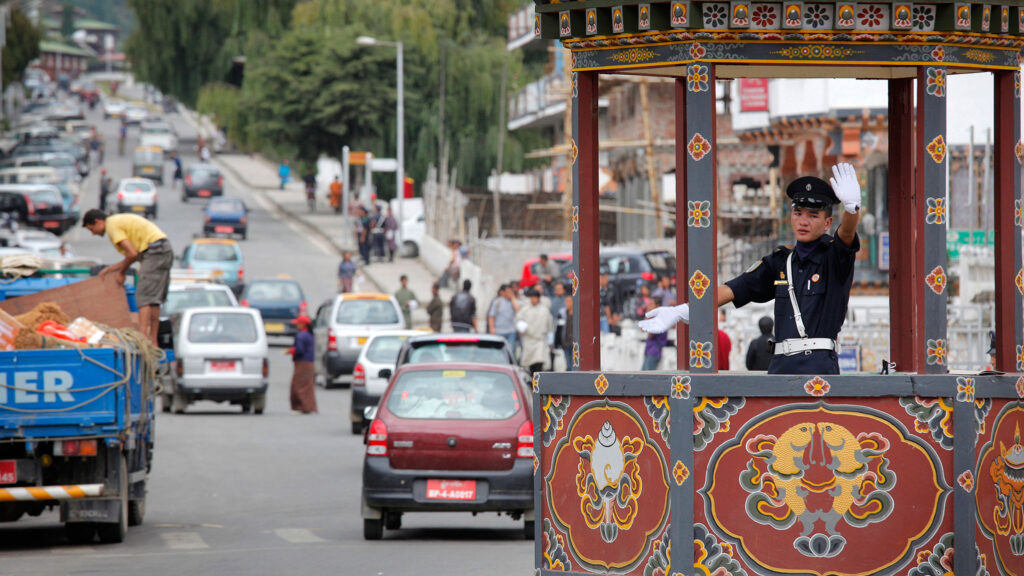
People in Bhutan are careful and sensible on roads. I saw every pedestrian to cross the road from zebra crossings only. Bhutan is a “honking-free” country; it was so relieving to see noise-free roads, which is an impossible thing in India. Also, people are in no hurry; car owners are patient enough to stop their vehicles to let the pedestrians cross the road. I barely saw any traffic police on roads there, and even then, people were so cooperative and responsible.
We must understand that following traffic rules will make life much better and simpler for everyone, be it pedestrians or drivers.
4. Be happy, life is too small to hold onto grudges and repent
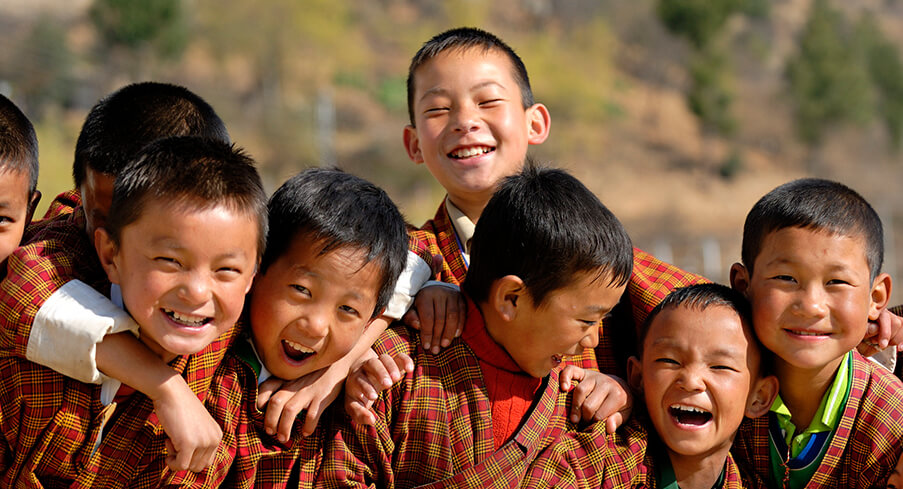
Have you ever found yourself blaming others for misfortunes that befall you? It is common to hold grudges and lament over past actions, but life is too short for such things. We should let go of the habit of cursing others for numerous reasons and move on.
Bhutan is renowned for its reputation as the happiest and most peaceful nation globally, and for good reason. Despite not being financially wealthy, the people of Bhutan are rich in heart, and prioritize spreading happiness. One can observe a sense of tranquility, patience, and serenity on the faces of its inhabitants. The Bhutanese are not driven by a desire for money and are not in a hurry.
Unlike many other countries, Bhutan does not measure its economic success by Gross Domestic Product (GDP), but by Gross National Happiness (GNH). This philosophy should be adopted by every nation.
The people of Bhutan teach us that happiness is the most valuable treasure one can possess. It is important to be content with what we have.
5. Say no to tobacco
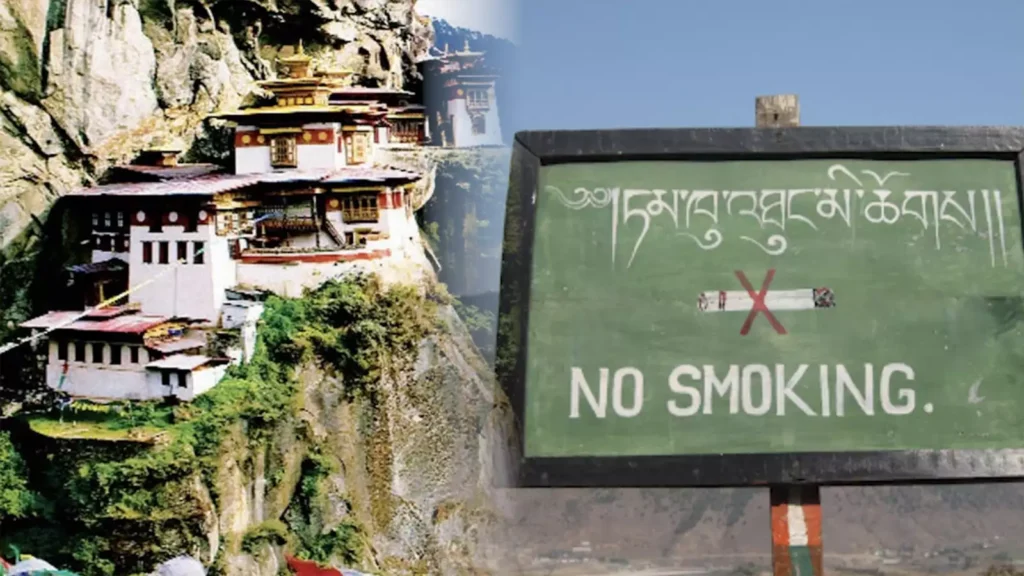
Do you know that Bhutan is the first country in the world to ban smoking entirely?
Smoking in public and selling tobacco is illegal there. Violators will bear a fine of USD 232, which is more than 2 months’ salary of most people there.
Making tobacco costly will not help much. Its complete ban is the need of the hour in our country.
6. Be polite, helpful, and respectful to others
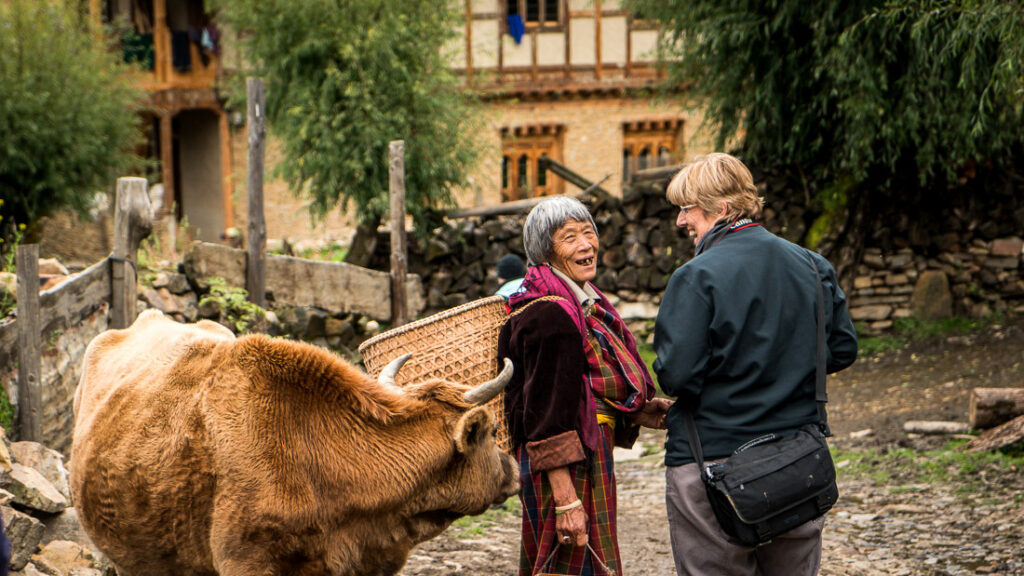
Being a Mumbaikar, I am used to listening to all sorts of abuses and seeing people argue and fight on even trivial matters. Every day, I witness people get involved in petty fights and arguments.
We have forgotten how to behave and how to respect other beings. In the rate race of earning more and more, we learn to hurt others and use them for our own good.
This is not the case with the Bhutanese. They love helping each other and uplifting fellow beings.
One of the best things I loved about the people there is the way they speak. They are very soft-spoken and polite.
Can we too, be a little polite, respectful, and helpful to the people around us?
Trust me, no matter how much you earn, you will always crave for more. We must focus on making our relationships with other people more strong and healthy. And all these three factors – politeness, helpfulness, and respecting others are the key to achieving it.
7. Nature is everything
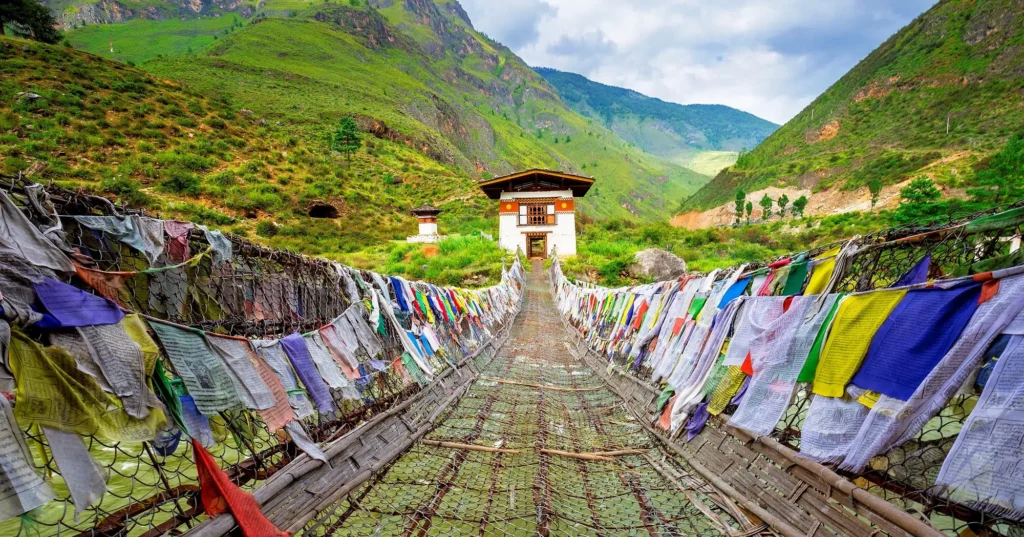
Both the Bhutanese government and its people have a deep concern for nature. Despite having access to numerous mineral deposits, such as coal, gypsum, dolomite, and limestone, Bhutan prioritizes the preservation of its environment over profiting from mining.
Bhutan emits no greenhouse gases as it generates very little pollution, which is absorbed by the country’s vast forests.
Moreover, during my visit, I did not come across any plastic in Bhutan. However, in India’s hill stations, particularly in the north, plastic waste is ubiquitous.
Immediate action is required to ban plastic in India, as it not only exacerbates environmental problems but also creates job opportunities for rural communities who can manufacture and use eco-friendly bags made of jute and cotton.
The government could support rural entrepreneurs in establishing small businesses for producing these environmentally-friendly bags under the Stand Up India and Make in India initiatives.
8. Spirituality and Peace
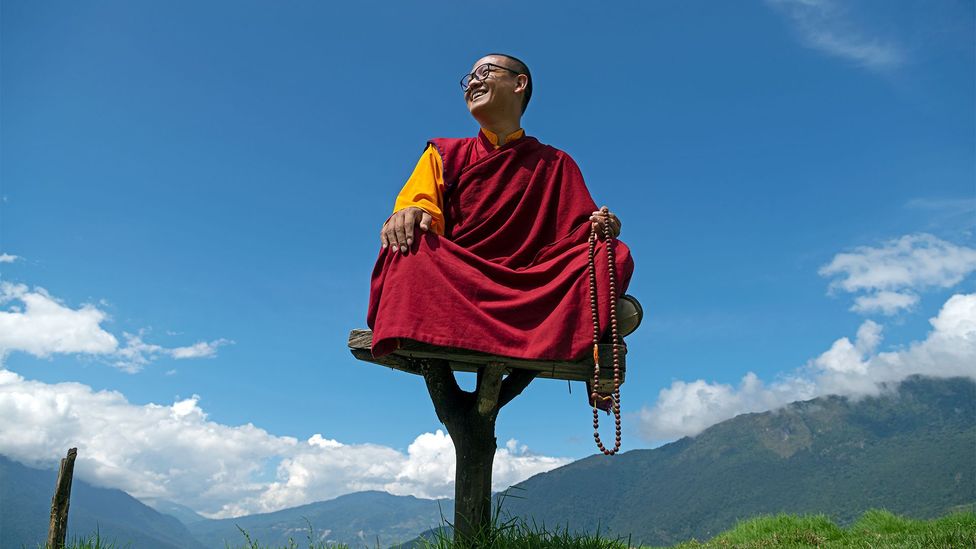
Spirituality is a hard-attained goal for most of us living in this extremely fast-paced world, but the tranquillity of Bhutan speaks of it otherwise. People are busy there as well; they are also chasing their life goals but at the same time are more connected to the spiritual world. As mentioned earlier, compassion is instilled in young minds and hearts from a very tender age, and it is not just any other value one must learn, but a way of life. Bhutan can be termed as the spiritual capital of the world, from the tranquil Buddhist monasteries, their reverberating chants that effuse serenity in the air, the ideal places that offer solitude and are ideal for contemplative meditation, or the hike to the top of the Takstang Monastery, everything exudes a serene air about it and in such an environment it is always easier to feel near and connected to the almighty.
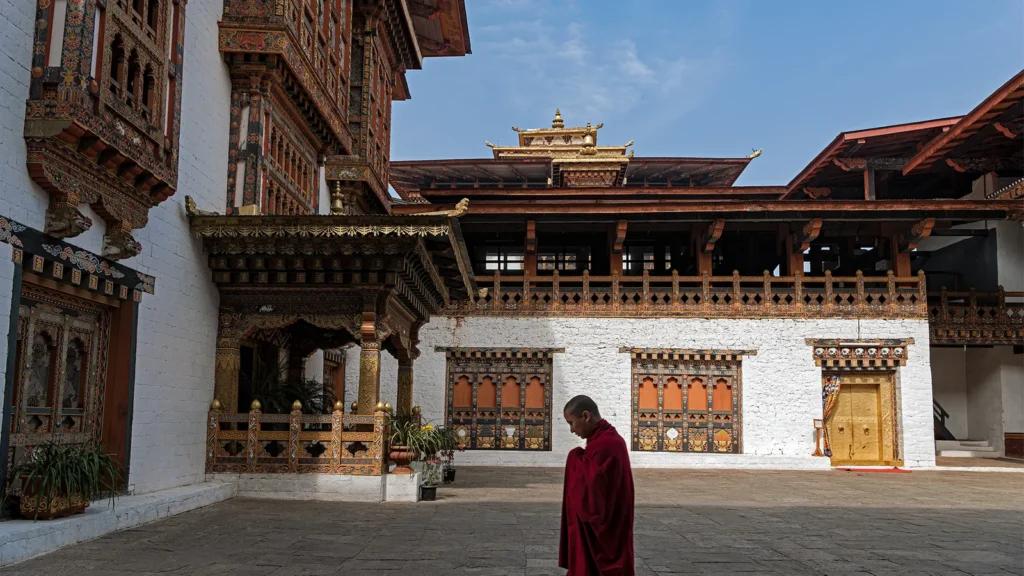
With such exuding spirituality in the air, the mountains, the valleys, and the people, in fact, everything about Bhutan is peaceful. Spirituality and compassion make it easier for oneself to attain and experience inner peace. When every individual in such a state of well-being, the nation marches ahead in unison.
Probably it’s these factors and many other initiatives taken by the Government as well that make Bhutan the country it is. To be named the world’s happiest country is in itself a great achievement and its time for other nations also focused on a such holistic approach toward development. There is so much to learn from this little country, our very own friend of the Himalayas. If anything else may have struck you while traveling in this part of the world, please feel free to share it with me in the comments below.
9. Compassion and Hospitality
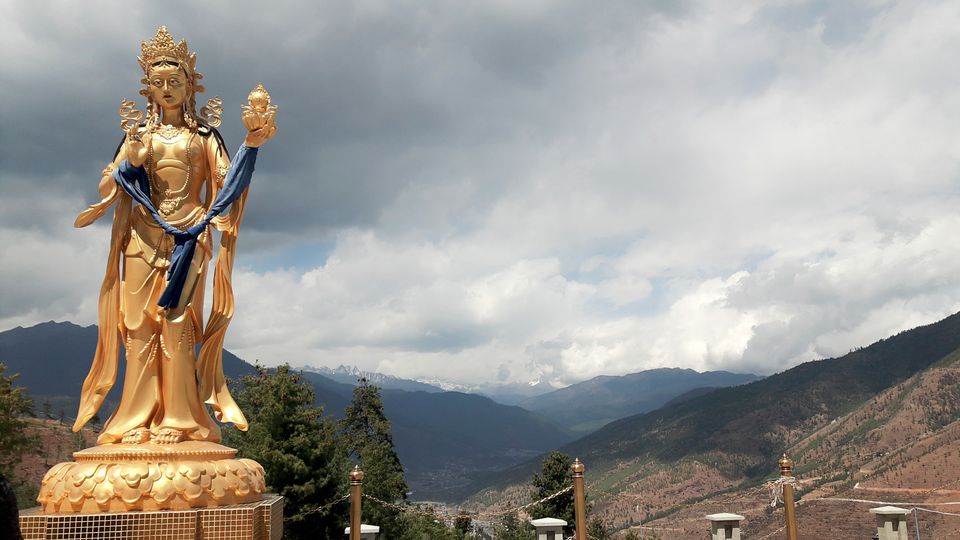
Bhutan is renowned for its association with compassion and the compassionate, exemplified through the celebration and reverence of Lord Buddha or Avalokiteshwara, the embodiment of compassion, as well as its efforts to instill compassion in the youth. It is a place where one can truly comprehend the significance and potency of compassion. I had the privilege of meeting a learned Guru Rimpoche who illuminated the concept of compassion in a lucid manner and explained why it is crucial in our daily lives. During our interaction, I had several queries on how compassion operates and how to cultivate it. The Guru Rimpoche advised me to begin by being compassionate to myself, eschewing self-pity and doubt, and loving myself first before extending that love to others. Secondly, he recommended that I pray fervently for the welfare of all, with a profound respect in my heart. One’s prayer could have an unforeseeable impact, bringing solace to countless individuals experiencing suffering across the globe. For instance, a person stranded in a desert might be suffering from severe thirst, but a compassionate prayer could lead to a benevolent traveler crossing their path, easing their plight. Thirdly, the Guru Rimpoche suggested that I translate my thoughts into action since even the slightest act matters. It is not necessary to contribute millions to charity. Simple deeds such as feeding a hungry animal, rescuing an animal from being slaughtered, feeding the hungry, or refraining from speaking ill of others are all ways to cultivate and practice compassion, fostering peace within oneself.
The Sanskrit adage, “Atithi Devo Bhawa,” meaning “A Guest is equivalent to God,” was truly embodied during my stay in Bhutan. I was accommodated by a friend in Babesa, Thimphu, and the hospitality I received surpassed all expectations. The hosts, despite being knowledgeable and prominent individuals in the city, were very warm and affectionate without any hint of pretense. Their humility captured my heart, and the love they showed me made me feel as if I was in my own home. The delicious food they prepared was a testament to the amount of love and care they put into it. The kitchen is an essential center of Bhutanese households, and most of our conversations took place there. The Bhutanese people value the importance of having at least one meal a day with the entire family gathered together, which is a truly gratifying experience.
